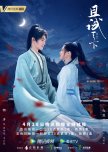
This review may contain spoilers
Story went down the drain at halfway point
Heard there was a lot of production issues with the drama, and it really shows nearing the end. First is how ridiculous the plot points are being tied up and many are forgotten because they have to start touching on the main plot which has barely moved till nearing episode 30. Then every episode from 30 onwards is so rushed with many scenes just randomly cut into without much explanation, and the finale was just disappointing felt like a waste of time sitting through all 39 episodes just to see how 40 ends. Poor adaptation overall the actors and actress honestly are the one that carried the show and why most people finished this series anyway.Was this review helpful to you?

Frankly, it's quite alright
I've never been a "big budget" drama/movie type of person, and Vivant hasn't changed my opinion on that. You can have the biggest budget, but emotional punches and memorable scenes don't need to take place in the vast Mongolian landscape or Hokkaido snow. It can happen in a small room anywhere.That being said, Mongolia was beautiful and the landscape was a joy to watch. Unfortunately this is not a documentary or travel docuseries so it really didn't matter to me. The happenings in Mongolia *cough, Balka* were not that exciting for me personally. I really enjoyed the financial scams within the corporate Japan world, that part of the drama made me on the edge of my seat.
Waste of acting potential for Nikaido Fumi, one of Japan's most brilliant actress. The doctor role was frankly annoying and she had zero chemistry with Sakai Masato.
The worst part of the drama is the revelation at the end (will not reveal to not spoil any plot) and the preachy part about how moral Japanese people are. This is coming from a Japanophile. People anywhere can be good, bad, moral, immoral, amoral.
Was this review helpful to you?
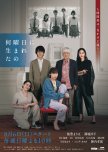
Riveting story-telling and brilliant dialogues
Brilliant storytelling and the twists and turns take you by surprise - by the time half the drama rolled around I wasn't quite sure where it's heading. I do like that none of the twists was really "shocking", they're rather mundane daily life things. As a drama, it was very entertaining to watch and you're always either on the edge of your seat or LOL'ing at Kumon Ryuen's inner hikikomori speaking out.I do wish the romance here went in a different direction, or maybe if the romance unfolds more slowly and in a different manner I would have preferred it more. Overall, it lacks those emotional punches that make it a must watch in my book, but still very worthwhile entertainment. Nojima Shinji's dialogues are brilliant and the acting is solid all around.
Was this review helpful to you?
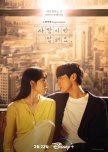
female lead’s wardrobe was terrible!
I loved everything about this storyline but I absolutely hated that wardrobe design made the female main character dress like a 15 year old high school kid throughout the whole movie, made the love connection unbelievable. I wish they would have dressed her more mature, more feminine. Ceo in suits and always handsome falling for a part timer in baggy pants and XL sweatshirt did not convince me of their affection for one another.Unfortunately, my rating went down significantly because of it.
Was this review helpful to you?

A REWATCH C DRAMA
One word to describe this serie: AMAZING and definitely a REWATCH. Love the FL and ML plus all the actors that played all characters did an awesome job.The story is very intriguing and in the beginning it grasps you to the FL right away and makes you feel all kinds of emotions because of what she's going through. It stirs you up in wanting to avenge for her and what she has gone thru.
Was this review helpful to you?

Emotions and their parallel to art: shaping love and searching for a ‘forever’ through sculpture
"How does one become such a great artist?" — "How do you define great?" — "To stand the test of time." — "I wonder if forever exists."Artistic, pensive, beautifully crafted, and unique in its cinematographic ways—‘Wakatte Ite mo: The Shapes of Love’ explores the vulnerability of struggling, waiting, hoping, and loving. It perfectly portrays the essence of human nature and captures love in its many different shapes under a refreshingly realistic light. It represents these themes through art in a mature and abstract manner, much like the concept of humanity and love itself.
In a world where "there is nothing more uncertain than a person's heart," the story follows the lives of artists who create art driven by their inspiration and their desire to create their own sense of forever. They are ready to put aside their usual composure and values in order to seek the heart of their loved one. For example, Kosaka Ren, the male lead, wants forever but acts in the opposite manner; however, his constant changes in girlfriends are his way of experiencing it and surrounding himself with the beauty of new beginnings. Another lead, Osakabe, thinks it's bad to act on lust, yet his world melts the second he sees his crush’s smile. Lastly, there is Ikushima Ruki, who wants to be with his crush but lets her be with another if it means gaining her trust and friendship first.
Ultimately, the series perfectly encapsulated the original webteeon’s overall message, reinforcing it with scenes and lines that portray its message more explicitly instead of requiring heavy analyses like it was for the webtoon’s Korean adaptation; ‘Nevertheless,’. The shortened run time allowed the leads’ journey to be explored more thoroughly without weighing down the whole series with its heaviness. Additionally, the poetic and inspirational narration made it easier to grasp its concept and allowed for a more direct interpretation of the webtoon’s work—keeping its core themes but casting aside tropes that don’t add to its main focal point.
Through Hamasaki Miu’s eyes, the female lead, Ren is the butterfly—beautiful, attractive, light, and seemingly free—giving her the illusion that he has it easy. The series adds a new meaning to the significance of butterflies: they are thought to be a symbol of freedom, but actually, they just fly the same paths over and over. Maybe the best thing they can do is just enjoy the ride. This goes for both of them because they are both like butterflies, or at least, they both try to carry the essence of butterflies by capturing their fleeting beauty through art. When Ren finds Miu, he wishes to metaphorically capture her, who is like a butterfly to him, but one who hasn't opened its wings yet.
Ren wants to approach her, mostly out of self-interest, intrigued by how she expresses her inner-feelings through art without fear, but also because of a certain fate-like pull that builds up following their many coincidental meetings. However, he is a playboy by nature—flirty and manipulative. He seems more curious about how far he himself is willing to go or devote to her rather than the other way around, not caring about her reactions and staying consistent in the attention that he devotes to her.
His push and pull plays with her emotions; his stance in his affection towards her grounded in unsteady terrain, teetering her back and forth into the territory of hopefulness and then desperation. This constant shift in Miu’s emotions highlights the overall theme of the series, which is that she can't help but hope even if she knows things will come to an end or leave a scar. Nevertheless, Ren constantly ignites these feelings of hope within her, making her want to reach out and seal the faith of their relationship—an impulsive act that mirrors his own tendency to act on impulse.
Kosaka Ren is a rather peculiar character. Since he is not good at sharing his feelings, he uses art to communicate them. Even we, as viewers, don't know him quite well and have been misguided by him many times with deceptions based on what we do see from him. For example, we don't know if whenever he picks up a call, it's his girlfriend. He never clarifies misunderstandings. In the last episode, “I couldn't succeed in becoming the most important person in her life” is a line said in his narration while the screen presents a note his mother left saying she'd be absent for lunch. This shows how he doesn't have commitment issues as is suggested throughout the whole series, but rather that he blames himself for the constant departures of the people around him in his life.
He's not the butterfly who comes and goes, but the others around him are, flocking to his beauty like butterflies do to flowers. “Gradually, I got used to giving people what they expected of me.” Ren only mirrors what those around him feel and how they act. He does this because he wants to avoid experiencing pain or loss, and whenever he declines their proposals, or finds himself wanting more, he always ends up getting hurt. And so, he chooses to follow the same paths over and over again like a butterfly with everyone around him, trying to please each one of them while looking for a piece of his own self through their eyes—which he eventually finds in Miu and soon enough, catches himself searching for her instead of his own self.
Through this endless cycle, he says he ended up losing his identity. He essentially became a canvas of however one sees him, having different versions of himself through different pairs of eyes, like a piece of art. Like someone interpreting a sculpture, Miu, as well as everyone else, can interpret him, what he says, his actions, and what is and isn’t known about him in their own way. Through Ren, who is like a sculpture, Miu hopes to find her forever. And through her, he sees yet again another chance to find his true meaning and define who he really is despite his traumas and past experiences in life. This is essentially why he leads on and makes so many people try to fall in love with him—because he wants to find the one, his true self, and his forever.
It is said by Miu’s toxic ex boyfriend that the female lead's wings are tied down, leaving only her thoughts to wander. However, there’s another interpretation suggested in the series: that her wings are rather too heavy to go forward—not tied down by external forces and submitted to others, as her ex had suggested through his sculptures of her falling to the ground and begging him to stay—but perhaps heavy because of the weight of their worth and hope, waiting for their reason to take flight in a world that keeps letting her down. The female lead, whose name means "beautiful wings," beautifully encapsulates this struggle of waiting for hope; hope that ultimately introduces itself in her life through the male lead.
From the very beginning of the series, during their first encounter, Ren recognizes this wait for hope of hers through her pleas for her boyfriend to stay. Instead of perceiving her pleas as a desperate and hopeless attempt of begging for something long gone, he sees that all she wants is to hold a promise of a future with someone, and that she has hope for something more than what she already has.
There are a lot of similarities that the female and male lead share—their fear of abandonment, their wish to freeze a loved one’s heart in time and gain a forever happy side by side with them, and their struggles in finding what they want in life. Though Ren doesn’t express his struggles and desires aloud like Miu does, he addresses them through his fiery art, which tells another story from the nonchalant version of himself that is presented through his character and the aloof image that he lets on—reserved, quiet, and who lets other people make things up and narrate his life.
Despite their seemingly stark contrast, both faces of himself that he puts out into the world stem from the thoughts and emotions. His art paints a strong image of resilience, longing desire, and determination in pursuing one’s desires—emotions that give him the impression of being lost and left with nothing but wavering emotions. In real life, these feelings of his manifest through his calm composure that radiates a sense of aloofness and indifference.
This overwhelming desire to find the key to freedom and his true self drives him to act like the playboy type, not knowing who to love or dedicate himself to. His art, on the other hand, portrays his sense of lostness as something fiery and bright and that drives him to maddening lengths, putting him in a fight against society’s typical representation of love and relationships, and forcing him to confront his true feelings.
Ren, in a way, relates to Miu and sees himself in the scene before his eyes, where he sees her for the first time. Through his eyes, witnessing her meltdown opens a window of opportunity. Ren likes to capture that happiness in the brief flutter of color in his world, like a butterfly, so he’s drawn to her strong personality and wants to capture the beauty that lies in the most beautiful and intense human emotion, which is love. From that moment on, he tries to draw that emotion out of her by making her fall for him. He does the same for other girls when he flirts, all to satisfy his somewhat selfish desires to only have a portrait of pairs of loving gazes around him so that he’s surrounded by beauty. At the same time, through this tactic of his, he gets attention from the opposite gender, mirroring his mom’s absence in his life.
Even if Ren’s actions can be perceived as stemming out of selfishness, his supposed attraction to her is also beneficial to Miu because he wants to awaken this strong, powerful, and beautiful feeling of love within her. He wants to make her wings flutter and for her beauty to be set free by expressing her emotions instead of restraining them and staying tied to the past that she’s stuck in. This is vividly illustrated when he guides her to smash the sculpture where she’s begging for her ex to stay. But her perspective of it contradicts his own: he sees her beauty through that sculpture; nothing bad and submissive about it, but instead, brave for not being scared to reach out and try to grasp what she truly wanted—something he doesn’t know how to dedicate himself to doing.
Similarly, just like how Miu struggled to be freed from her painful last moments with her toxic ex that had been frozen in time both metaphorically and literally, Ren also wishes to be freed from his own struggles. For him, the butterfly doesn't represent something light and nonchalant and non-troubled as Miu had suggested, but is rather representative of a small precious thing that tries to navigate through the harsh and turbulent-winded world with its colorful yet light-weighed wings. His desire for freedom and his little efforts to cast a ray of colour in the world manifests itself through his obsession with butterflies. These insects are a recurring motif throughout the series, not only symbolizing change and growth but of which are also a statement of the short-lived but beautiful flutters that can be seen when one pushes through hardships and keeps on flying.
Furthermore, butterflies aren’t the only metaphorical symbol that has been included to better convey the story’s message to viewers. One of Ren’s characterics is the way rainstorms always follow him. These scenes in the rain with Miu hold a greater meaning than just being a rainy day. Despite his messiness, he serves as something stable in Miu’s life, like an anchor among the countless possibilities she has to navigate and the decisions she has to make as she enters adulthood. Since she feels like she doesn't really know herself and has trouble finding the answer to anything when it comes to being subjective, this inevitable journey she’ll have to face stresses her out. Ren’s strong attraction for her never ceases in its intensity, and in this, she finds a harbor in her life.
By diving into the complexities of human emotions, relationships, and the unpredictability of attraction, the series conveys the message that some things just can't be helped. The leads’ imperfect relationship is threaded with flaws and raw with hidden insecurities. The magic in their chemistry lies in the delicate yet profound interactions they share, and the space between them constantly grows wider and smaller, full of hidden meaning and unspoken words. ‘Wakatte Ite mo: The Shapes of Love’ portrays romance as something realistically hurtful and messy, and exemplifies how love is not something that is bound to be constrained to limits. It is everything but simple or straight out of a fairytale. Instead, it is a love story using its own words—not sticking to convenience for the sake of its principal aspect of romance despite the numerous physically intimate scenes.
The show’s beauty lies in its unique perspective and outlook on life that it sheds through this window of two young adults trying their best to navigate their lives. Even though we may lie to ourselves or convince ourselves otherwise, nevertheless is a word that defines us all. Our overbearing desire to act freely against others’ rules and against our own will is the human nature of our essence here on earth. "If you just label yourself as something, it'll just restrict you." is a line pulled from the series that encapsulates its essence, defining how there is beauty to be found in the unknown. As the title suggests, the shape of love looks different for everyone, just like one emotion can be represented through many different sculptures and hold different interpretations through each individual's eyes.
The series is tied up beautifully, its last scene especially goosebump-inducing—Ren knows that forever doesn't exist, and Miu knows that she shouldn't hold out for hope, but nevertheless, they come together and discover that the shape of forever is simply holding on to hope.
Was this review helpful to you?

A Hilarious, Emotional Rollercoaster of Love, Friendship, and Social Stigma
Diary of Tootsies is a Thai dark comedy series that masterfully intertwines hilarity and heartbreak in a way that feels refreshingly authentic. Following the lives of a group of queer friends navigating love, friendship, and societal expectations, the series balances its over-the-top humor with poignant moments of emotional depth. What makes Diary of Tootsies truly stand out is its ability to tackle heavy themes—such as rejection, identity, and societal stigma—without ever losing its comedic edge. The result is a raw yet entertaining exploration of what it means to be unapologetically yourself in a world that often expects conformity.At the heart of the series are four protagonists: Gus, Golf, Kim, and Natty. Each character brings their own unique charm and chaos to the story, creating a vibrant and dysfunctional family dynamic that feels relatable and endearing. Gus, the self-proclaimed “mama” of the group, is a walking contradiction of fierce loyalty and chaotic decision-making. Golf, the most flamboyant and outspoken of the bunch, delivers laugh-out-loud moments with his outrageous antics but also harbors insecurities that occasionally surface in heart-wrenching ways. Kim, the quieter and more reserved member, provides a grounded counterbalance to the group’s wild energy, while Natty, the sole straight woman among the queer trio, acts as both an ally and occasional instigator in their misadventures.
The series thrives on its comedic timing, outrageous scenarios, and bold willingness to push boundaries. From awkward Tinder dates gone wrong to drunken confessions that spiral into chaos, Diary of Tootsies doesn’t hold back in portraying the messiness of life. Yet, beneath the slapstick humor lies a deeper narrative about the struggles faced by LGBTQ+ individuals in a society that often marginalizes them. The series cleverly uses humor as a shield, allowing it to address sensitive topics like unrequited love, infidelity, and societal prejudice in a way that feels both impactful and accessible.
The humor in Diary of Tootsies is unapologetically graphic, sometimes veering into the absurd, but it never feels out of place. Instead, these moments amplify the emotional weight of the story, creating a unique blend of comedy and tragedy that keeps viewers hooked. For instance, a seemingly lighthearted scene about a disastrous blind date might transition seamlessly into a heartfelt conversation about self-worth and acceptance, leaving audiences laughing through their tears.
What sets Diary of Tootsies apart from other LGBTQ+ narratives is its unflinching honesty. The series doesn’t attempt to sanitize or simplify the lives of its characters; instead, it embraces their flaws, mistakes, and complexities. This authenticity makes the characters feel like real people rather than stereotypes, and it’s impossible not to root for them as they stumble through life’s ups and downs.
Ultimately, Diary of Tootsies is more than just a comedy—it’s a celebration of resilience, chosen family, and the messy beauty of being human. The series shines a light on the queer experience with humor and heart, proving that even in the face of societal stigma, there’s always room for love, laughter, and a little bit of chaos. Whether you’re part of the LGBTQ+ community or an ally, this series is a must-watch for anyone who appreciates dark comedy with a soul.
Was this review helpful to you?
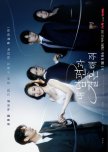
This review may contain spoilers
A delicious, addictive time-travel drama marred by a third lackluster villain
At first glance, Marry My Husband might just be a new addition to the ever growing list of time travel k-drama released this year. However, powerful and electrifying performances from Park Min Young and Song Ha Yoon will keep you running back for more.The story revolves around Kang Ji Won (Park Min Young) getting killed by her husband Park Min Hwan (Lee Yi Kyung) after she learns he's having an affair with her best friend Jung Soo Min (Song Ha Yoon).
As if by miracle, Ji Won wakes up 10 years earlier and she is now determined to change her life and get back to those who have wronged her. She also gains an unexpected ally Yoo Ji Hyuk, played by Na In Woo and together they execute her revenge plan and transfer her fate to Soo Min.
The blood-boiling villains is one of the highlights of this k-drama. Min Hwan and Soo Min has constantly kept me at the edge of my seat and made me want to choke them through the screen. Every move they make, every word they speak will leave you seething with rage and will keep you rooting for Ji Won. This villanious duo never runs out of tricks up their sleeves.
The first act is over the top and melodramatic with its twists and turns. However, it failed to deliver interesting plots on the last four episodes. The story could have explored more variables regarding the rules of time travel and transferring of destinies to other people instead of adding another one-dimensional antagonist. We did not even get answers as to why Ji Won can easily pass her fate to someone else without any repercussions. It felt like Ji Won and Ji Hyuk can change anything to their heart's desires.
Once Ji Hyuk's fiancée O Yu Ra (played by BoA) took center stage, my curiosity to the show has diminished. She is nowhere near Soo Min's two-faced character whose actions are unpredictable and can seamlessly act kind or wicked as the situation calls for. Yu Ra is just a chaebol who kills people just for fun and to kill time. Her character is not even properly set up and she just came out of the blue.
Overall, this was very entertaining albeit only for its first act. The story is not trying to break new grounds but still strives on being a guilty pleasure watch. However, one thing is for certain—Soo Min will go down as one of the best villains in the k-drama world at par with The Penthouse's Cheon Seo Jin.
Was this review helpful to you?
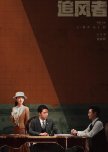
don't go into this drama expecting something extraordinary
despite good acting, portrayal of characters is heavily biased. all the morally grey or outright negative characters are non-communists, while communists are uniformly depicted as virtuous and compassionate (usual propaganda). this lack of nuance detracts from the realism of the story, as no group is entirely free of flaws. another thing that really bothered me was the handling of a romantic relationships. if screenwriter intends to tease romantic subplots, it would be better not to do that. these tiny moments make watching experience more frustrating. despite WWs being overused theme in cdramas, this drama is able to stand on its ownWas this review helpful to you?

Dramatic and Historical
I have seen a lot of negative comments about the focus of the silk and brocade business aspect of this drama, and it saddens me a little.What people fail to understand is that this drama *is* historical, and is relaying to the audience the great efforts it took by the Chinese to establish what is known as “The Silk Road”. It was then, a trade route that stretched from China to the Mediterranean region spanning over 4,000 miles or 6,400 kilometers. That it itself was astounding.
The Silk Road not only opened up that then monstrous trade route, but it also gave opportunity for cultural as well as goods exchanges through foot traffic. Many of those who traveled the Silk Road after it was established were Chinese merchants and Buddhist monks. It brought trades of silk, spices, metals and a myriad other items to areas that had not been exposed to them previously. Currently, since it has been rediscovered, the Silk Road has been reopened and the United Nations sponsored a trans-Asian motor highway and railroad project, and China’s Belt and Road Initiative (BRI) aims to revive and expand the ancient routes through modern infrastructure development.
The history is diverse and rich. If you are only interested in romance then this drama is not for you.
If you drop your expectations and truly watch this drama for what it is, a look back at the establishment of a massive trade route, the often overwhelming and demoralizing structure of family clans, the unjust and often brutal treatment of women and servants with a love story mixed in, then watch and enjoy.
First - just a big shout out to Mr. Beauty ( the nickname for Zheng Yecheng from Love 020). His martial arts are made incredibly beautiful due to his background in theatrical arts and majoring in opera. He is perfect for roles like this. I cannot say enough about his wire stunts or his acting as they are stellar.
Tan Songyun is as usual, fabulous. Fiesty, protective
Was this review helpful to you?
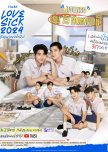
I love this remake
I watched the original series in 2023, Seasons 1 & 2 plus the short Series ReminderS. I also re-watched a cut version where most of Jeed's and Tangmo's stories were deleted; I preferred the cut version because the focus was on the main leads.In this remake, it's definitely focused on Noh and Phun. There are sub-plots but they don't take too much time away from our leads; Hard to believe but there are actually fewer characters in the remake than the original. They consolidated certain characters and attributed certain roles to the more prominent characters, and these were well executed.
Noh and Phun have amazing chemistry and their longing for each other is so evident in every scene. I admired Noh's patience waiting for Phun to figure out what he needed to and just stayed by his side the whole time, but also gave him space if that's what he needed.
Was this review helpful to you?
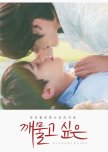
Give it a second watch, it's better
Long story short, watching it the first time I was confused and I didn't like it. However, watching it again (over 2 years later), the show is actually quite entertaining. When you watch it the second time after knowing the story, it's more pleasant to watch. The acting is good and there are more emotions. Watch it a second time and you might like it more!Was this review helpful to you?
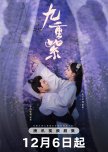
story lost it's focus
i won't lie about the start of this drama being good, but in the middle part, it kind of lost me. however, i still appreciate excellent acting by the lead actors and cinematography. there were side characters relationships revolving main characters that weren't handled properly. also, the villain's take down was kind of underwhelming and dragged out.Was this review helpful to you?
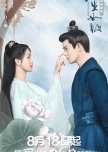
Pure love
I love the love between Zhou shengchen and Shi yi. Their love is just so kind and pure. No need kiss scene to prove their love. Their eyes can't lying, their face can't hide. Really amazing acting of Allen and Bai Lu!Everything feels perfect, let's not talking about the ending. Sadly the ending for the conflicts are just so fast, like they only focus on Zhou shengchen and shi yi ending, and makes the conflicts ending not really satisfying, because it seems rushed
Was this review helpful to you?
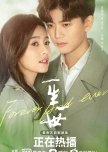
This review may contain spoilers
Pure and mature love
I just so in love with this drama!!I love Zhousheng Chen and Shi Yi relationship. Thier love is very pure, kind, healthy and mature❤️ No selfish, no childish. Watching this drama makes my face can't stop smiling! Their interaction is really cute and sweet. I love Shi Yi, she is mature, brave, kind, humble and always support Zhousheng Chen. While Zhousheng Chen is really cute, brave, and always put Shi Yi first. They always learn to know and accept each other. I think everyone need a man like Zhousheng Chen. And I hope someday I can meet my Zhousheng Chen💗
Was this review helpful to you?
Recent Discussions
-

-
 How do you think the kdrama will end?46 minutes ago
How do you think the kdrama will end?46 minutes ago -
 Search question53 minutes ago
Search question53 minutes ago -
 What was the last song (non Asian) that you listened to? #253 minutes ago
What was the last song (non Asian) that you listened to? #253 minutes ago -
 Last Asian Song You Listened To?54 minutes ago
Last Asian Song You Listened To?54 minutes ago


